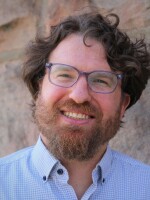ARI SHAPIRO, HOST:
The man accused of killing 11 worshipers at a Pittsburgh synagogue in 2018 has been found guilty on all counts. Six other people were wounded in the attack at the Tree of Life Synagogue. Oliver Morrison of member station WESA has been following the case in federal court. Hi, Oliver.
OLIVER MORRISON, BYLINE: Hi.
SHAPIRO: Tell us about the charges that the shooter was convicted of today.
MORRISON: So there were three main kinds of charges. The most serious was murder with a hateful intent as we know that he had expressed a lot of antisemitism. There were a couple of other sets of charges - that he was obstructing people's ability to observe their religion and then also firearms charges related to the first two. The jury ended up only deliberating for about five hours, and then when everyone came back into the court, the judge instructed everyone that, you know, they shouldn't say anything when the verdict was read aloud. So it was really silent. I felt like I - like the person next to me could hear my breathing. But there wasn't much going on in the courtroom - nods and things like that. But after the verdict, I did talk to Jo Recht, who was the president of Dor Hadash, and that was one of the three congregations that was worshiping on the day of the attack. And she spoke outside after the verdict.
JO RECHT: There have been so many emotions and so much intensity throughout the testimony and the closing statements yesterday. But I am feeling a sense of relief that after 4 1/2 years, the world has heard again about the horrific acts on October 27, 2018, and the shooter has - is being held accountable for those awful acts.
SHAPIRO: Now, I understand the verdict was not a surprise. What did the jury learn about the shooter, Robert Bowers?
MORRISON: Right. The defense argued from the very start that he was the shooter. I mean, he was caught on that day, and he had an extensive history of antisemitism in his electronic record. They didn't even call any witnesses or present any testimony. But what the defense did argue was that some of his posts - the ones - especially ones right before the attack were geared towards a refugee resettlement group. And so the defense argued that he wasn't really being hateful towards Jews. He was being hateful towards this refugee group and that he only - they only attacked - he only attacked the synagogue because one of the congregations at the synagogue had supported this refugee group.
SHAPIRO: Did the prosecution respond to that?
MORRISON: Yeah, they said that, you know, if you looked at the whole totality of his history online, he had posted thousands of times where the word Jew is mentioned but only a handful of times where you can hear him talking about refugees. And so when they say - when you look at the totality of what happened, just the fact that his latest excuse for antisemitism was that they supported refugees - you know, that wasn't enough. I did speak to Jeff Finkelstein, who's the president of the Jewish Federation of Greater Pittsburgh, and he said the jury's verdict should put a rest to this defense argument.
JEFF FINKELSTEIN: This was an antisemitic incident - period, end of the statement. And hopefully that will come out again in the next phases of this trial.
SHAPIRO: The next phase includes sentencing, when Robert Bowers could be sentenced to the death penalty. How is this going to work?
MORRISON: So they'll get a week off. It's the same jury, and then they'll have to decide whether he should get the death penalty or life in prison. So the prosecution will present evidence, you know, sort of showing how horrible the crime was. And the defense will be able to call witnesses in his favor, such as his mother, but also talk to psychologists who they say think he has a mental health illness that may have caused him to do this terrible act.
SHAPIRO: Oliver Morrison of member station WESA. Thank you for your reporting.
MORRISON: Thank you. Transcript provided by NPR, Copyright NPR.
NPR transcripts are created on a rush deadline by an NPR contractor. This text may not be in its final form and may be updated or revised in the future. Accuracy and availability may vary. The authoritative record of NPR’s programming is the audio record.





